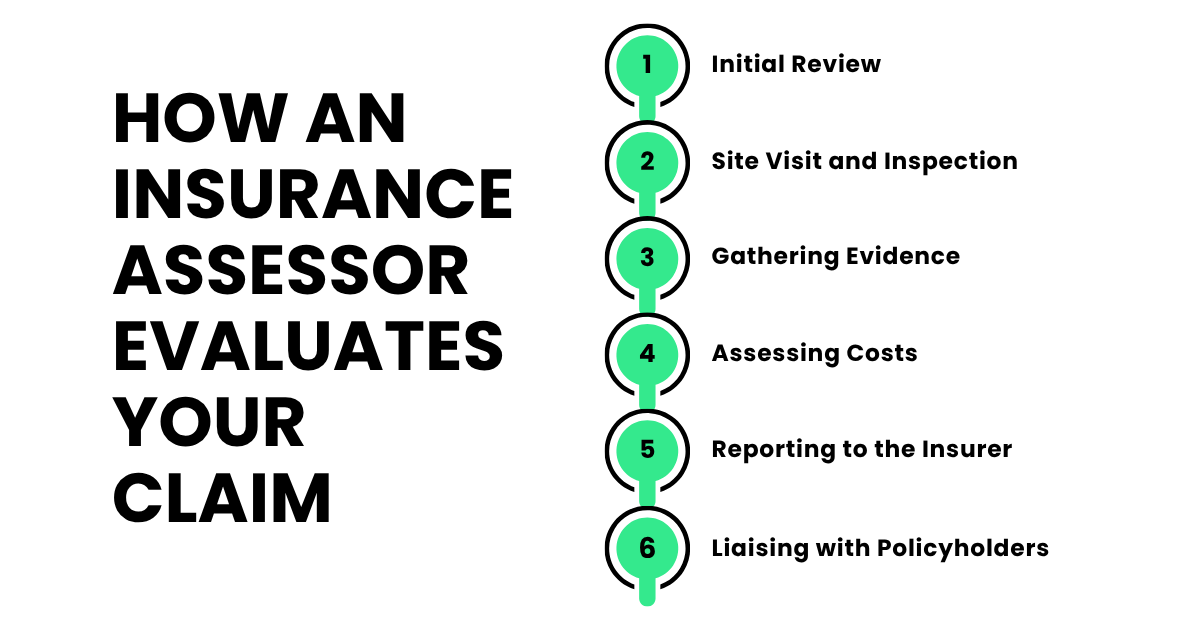Contents
What Does an Insurance Assessor Do When Evaluating Claims?

The role of an insurance assessor is hands-on and detail-oriented.
Here’s a step-by-step look at what they do when evaluating a claim:
- Initial Review: The assessor starts by reviewing the claim details submitted by the policyholder, including the policy documents to understand what’s covered.
- Site Visit and Inspection: For claims involving physical damage (e.g., a flooded home or a crashed car), the assessor visits the site to inspect the damage firsthand. They take photos, measurements and notes to document the extent of the loss.
- Gathering Evidence: Assessors may interview the policyholder, witnesses or other parties (like repairers or contractors) to get a full understanding of the incident.
- Assessing Costs: Using their expertise, assessors estimate the cost of repairs or replacements. They may consult with specialists, such as builders or mechanics, to ensure accuracy.
- Reporting to the Insurer: The assessor compiles a detailed report with their findings, including recommendations on whether the claim should be approved and how much should be paid.
- Liaising with Policyholders: In some cases, assessors communicate directly with you (or through your insurance broker) to clarify details or explain the outcome of the claim.
Types of Insurance Assessors
Not all assessors are the same. Depending on the claim, different types of assessors may be involved:
- Internal Assessors: These are typically employees of an insurance company who evaluate and process standard or routine claims, such as minor car accidents or straightforward home repairs.
They work directly for the insurer and handle claims that follow standard procedures, often using the company’s guidelines and systems. - Independent Assessors: These professionals are often contracted by insurance companies through third-party firms to handle more complex or specialised claims, such as large-scale property damage, liability disputes or claims requiring niche expertise (e.g., engineering or medical knowledge)
- Loss Adjusters: These are professionals who investigate and evaluate insurance claims to determine the extent of the insurer’s liability.
As a policyholder, the assessor’s evaluation directly impacts the outcome of your claim.
A thorough and accurate assessment means you’re more likely to receive a fair payout without unnecessary delays.
Here at Tank Insurance, our team can help ensure that the assessor has all the necessary documentation and that your claim is presented in the best possible light.
Contact us today and let’s discuss your insurance needs!